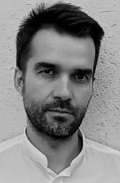Cuero contra plomo
fútbol y sangre en el verano del 82
Ojeda, Alberto
Just one hour after the opening ceremony of the 82 World Cup ended, ETA assassinated a civil guard in the port of Pasajes. The band had announced that it would not directly attack the competition: they also liked football, they said, although the risk that the showcase of the recently uncorked Spanish democracy could shatter remained intact. Thus, under the panic of a terrorist irruption, the ball rolled that summer. The Spanish team did not give foot with ball. It was our Italian "cousins" who embroidered it. No one gave a penny for Spain managing to organize a World Cup in such a convulsive and delicate time; Nor did anyone give a lira for the azzurra to do something meritorious. But the tournament caught on, logistically and sportingly: it was epic, lyrical and magical. The team of the stoic Bearzot lifted the cup at the Bernabéu. Both events put an end - in a more than symbolic way - to the years of lead that bloodied the two countries, the most martyred in Europe by terror, sown by both left and right extremists. Leather against lead contrasts the bloody historical evolution of Italy and Spain in the 1970s and early 1980s. A journey full of analogies (GRAPO-Brigate Rosse, Moro-Carrero, Piazza Fontana-Correo Street, Pinelli-Ruano...) and intertwined with the narration of memorable matches, such as Spain's firecracker against Northern Ireland or the majestic defeat inflicted by Italy on the Brazilian jogo bonito in Sarrià. A story, then, of goals and bullets.
- Author
-
Ojeda, Alberto
- Subject
-
History
> History of Spain
- EAN
-
9788418481659
- ISBN
-
978-84-18481-65-9
- Edition
- 1
- Publisher
-
Altamarea
- Pages
- 248
- High
- 20.5 cm
- Weight
- 13.5 cm
- Release date
- 05-10-2022
- Language
- Spanish
- Series
- Ensayo




